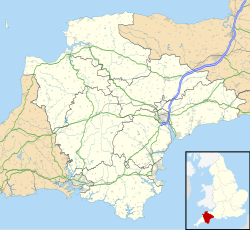| Mariansleigh | |
|---|---|
 St Mary's church | |
Location within Devon | |
| Population | 170 (2021 census) |
| Civil parish |
|
| District | |
| Shire county | |
| Region | |
| Country | England |
| Sovereign state | United Kingdom |
Mariansleigh is a village and civil parish in Devon, England, with a population of 170 in 2021.
